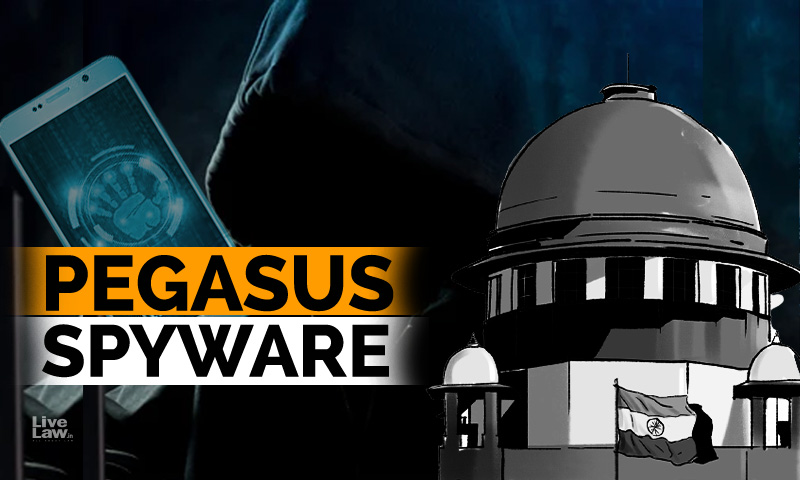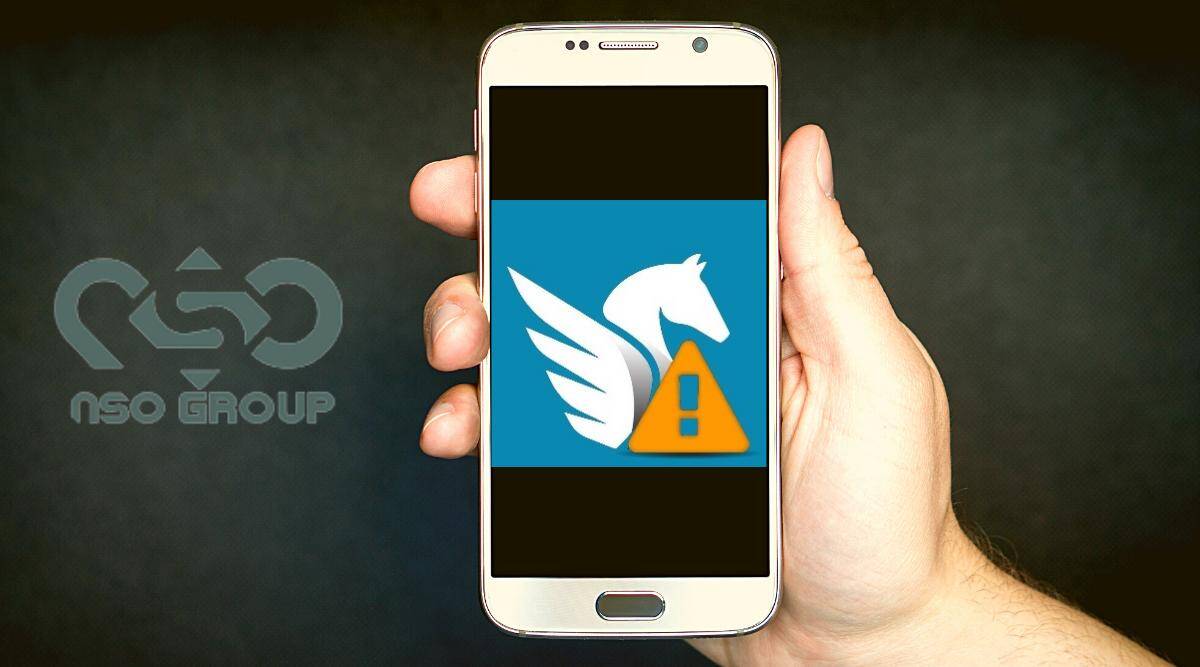
The Chief Justice of India has said that the truth behind the Pegasus scandal must come out. The matter was heard by the Supreme Court of India for the first time earlier this week and the court observed that “No doubt, the allegations are serious, if the reports are true”. You can read the entire details of the hearing here:
Countries like France do not seem to believe that: 1. The Pegasus scandal has been raked up by the opposition only as a tactic for the monsoon session of the Indian Parliament; 2. Pegasus is a non-issue 3. Privacy is dead, all governments snoop, so no point investigating the scandal. (More on that later). Since it doesn’t believe any of this, France is seriously investigating the scandal. A recent report reveals that the French intelligence agency has confirmed that the mobile phones used by French journalists were indeed infected with Pegasus. It bears repetition that at least three heads of state have been targeted via this snooping software.
Seventeen journalists across the world have filed complaints with prosecutors in Paris against NSO, the company which owns Pegasus. This includes five Indian journalists. In India, however, the Union government is trying its best to bury the matter. It is stubbornly sticking with its refusal to discuss the matter in Parliament despite fervent demands for the same by multiple political parties including even an ally- Nitish Kumar’s Janta Dal United.
The government has even gone to the extent of disallowing a question on the matter in the Parliament. Quite remarkable that the government would go to these lengths for a matter it claims is a non-issue. Meanwhile, three retired top cops have said that given revelations that false evidence was planted in the phones of the accused, the Elgaar Parishad case needs to be examined afresh.
Enough on Pegasus for now, but more on privacy and the internet.
Apple has decided that it will scan iPhones in the United States for images and compare them with a database which has known child abuse imagery. This report in The Guardian says,
“If a strong enough match is flagged, then Apple staff will be able to manually review the reported images, and, if child abuse is confirmed, the user’s account will be disabled and the National Center for Missing and Exploited Children (NCMEC) notified.”
Experts have pointed out the obvious, which is that once you create the technology to invade someone’s phone, it won’t only be used for legal and ethical reasons. As The Guardian report also points out, it won’t take much for someone to hack another person’s phone, insert an illegal image on it and get the phone disabled.
At this point, we must talk about the elephant in the room, there are various names for it- ‘Privacy Nihilism’ is one, ‘Privacy Fatalism’ is another. The manifestation of this sounds like people asking the following questions:
Smartphones+internet= privacy is dead, there is no point fighting the invasion of privacy by Big Tech and authoritarian governments.
If you want privacy just don’t use a phone.
We are willingly sharing more information with the internet than anyone will want to take from us.
Privacy must erode if national security has to be preserved.
First, that a problem is ‘too big to fight’ is not an argument that should be taken seriously. An assault on rights has historically been led by giants. Take for instance, colonialism and the British Empire. Slavery in America. Women’s right to vote, remarry, divorce. One could go on and on. It has never been the case that people decided to fight an evil because it was easy to defeat it. It has never been the case that only fragile assaults on rights have been defeated.
Second, privacy is not dead. It is alive. You will realise it is alive when you ask people if they will allow the CCTV camera installed by the government on the road outside their house to look inside their bathrooms and bedrooms. They will resist. This is precisely what Pegasus does by controlling the camera of the mobile phone.
Third, it is no longer a valid argument to say- then don’t use a phone or even a smartphone. A smartphone is no longer a luxury or a frivolous indulgence. It is often an indispensable tool to not only conduct commerce but even to access welfare as crucial as a vaccine in a pandemic.
Fourth, those who argue for privacy do not say that law enforcement agencies must not have any powers whatsoever to obtain access to a person’s phone. Laws enabling this access already exist. Even existing laws allow too much leeway for misuse and abuse. The fact of the matter is that the increasing attack on individual privacy isn’t required for protecting the public, it is required only for harming the public. It is required so that journalists and opposition leaders are not able to bring the truth out in the open. It is required to protect politicians in power when they commit crimes against those they have sworn to protect. It must be resisted.
A lot more work in terms of awareness and advocacy needs to be done before this fight is called or conceded.
The government of India has introduced yet another mobile phone based welfare distribution measure – e-Rupi. The claim is that it will be like a voucher which can be sent via text message also.

In the face of the glaring truth that millions in this country live not only without internet but also without mobile phones and sometimes even electricity, yet another mobile based instrument of distributing welfare is difficult to understand. If these are being introduced, will Ration Cards or Aadhaar Card not be required to access benefits? Has the introduction of this measure been preceded by an audit of current systems? There seem to be no answers.
The very first beneficiary listed on the official website is corporates. The first sentence listing benefits says: “Corporates can enable well-being of their employees”. Corporates already use Sodexo coupons for a certain class of employees.
As for the rest the problem isn’t the mode of distributing benefits, but the very distribution of benefits itself. A google search will reveal frequent cases of even minimum wages being denied. The salaries of anganwadi workers are being kept pending for months across the country. The dues of Sugarcane farmers run into thousands of crores. In view of all this, money being invested in yet another platform and vessel is difficult to understand. Perhaps we will have more clarity as time passes.
We, at Digital Empowerment Foundation, have been busy as usual. This is Layak Ram, who single-handedly brought internet to his village in Barabanki. He is our Barefoot Wireless Engineer who has learnt all on the ground, truly a digital access provider through community networks.
Anisa is entitled for the government pension scheme. But, for a long time, she was trapped in the vicious cycle of applying and rejection. Read about our role in her life.
During the pandemic, Rajayya - a resident of Utagaddapalem village, Vizag, lost his job. The amount accumulated in his Provident Funds account was the only funds he had for survival, which he couldn't withdraw. Pandivanipalem Smartpur Spoke centre helped him to complete the online application.
Ministry of Electronics and Information Technology (Meity) published a policy paper and action plan on the issue of e-waste and invited comments. Digital Empowerment Foundation in this context organised a panel discussion on this policy paper. This discussion brought both importance and the flaws of the policy paper and action plan to the fore and is an attempt to provide the comments to the government.
Read the Draft Policy Paper and Action Plan based on this panel discussion here.
Until next time!
























 might be?](https://sk0.blr1.cdn.digitaloceanspaces.com/sites/1394/posts/714526/dbc8de4c-5c50-411f-aba0-55cfb74a692d.jpeg)

Write a comment ...